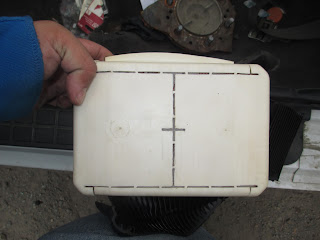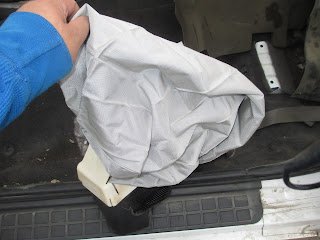(1) What is your
essential question? What is the best
answer to your question and why?
What is the most important feature of an automobile to keeps its passengers safe?
My best answer is having an effective and maintained braking system. In this age full of technological advancements in vehicle safety, cars still have two basic functions. All cars are supposed to stop and go. If the vehicle can only complete half of this task, it's unsafe to be in. At the same time, simply being able to stop isn't enough. To stay safe, the car has to be able to stop quickly and effectively. If the car skids, stops too slowly, or loses control the lives of passengers are in danger. Because of this, it's important that the most simple feature of the car also be the most effective.
(2) What process
did you take to arrive at this answer?
Choosing my Essential Question was a difficult process, but I settled on the topic of vehicle safety features because I was intrigued by the technological aspect of everything in the field. From there I had to look over the various parts in cars that make things safe, and how they all functioned together. Despite finding some fascinating information about everything, one feature was constantly receiving attention regarding vehicle safety and safety development. I could ultimately narrow my answer down to the brakes.
(3) What problems
did you face? How did you resolve them?
Deciding how to prioritize my answers was difficult. It became obvious that brakes were important with more research, but the huge amount of information available to me regarding every other feature was also fascinating. Deciding on what answers would be valid and wouldn't be valid was difficult, but with more research I was able to set on three answers that were very effective and had plenty of research on them.
(4) What are the
two most significant sources you used to answer your essential question and
why?
My two most important sources were my interview with Danny Fierre and a written source. My third interview really put a lot of the things I learned into perspective, from someone else who was a professional mechanic. I still quote him frequently throughout my senior project because of how influential he was. He also helped me become more confident in my best answer. My second best source, David Burton's "Effectiveness of ABS and Vehicle Safety Control Systems" taught me a lot about what would become my best answer down the line. The source was filled with technical and statistical data regarding ABS.
(5) What is your
product and why?
Before starting my senior project I was only mildly interested in auto repair. It was a way for me to make money, and I didn't care too much about what I was doing other than doing the job. After this year though, I've been taking more pride in the knowledge of the field, and my technical skill has expanded because of this. I've been finding it easier and easier to work independently, and I'm showing growth more rapidly than before. My skills under the hood have grown as I've become more aware of the work that I'm doing.









